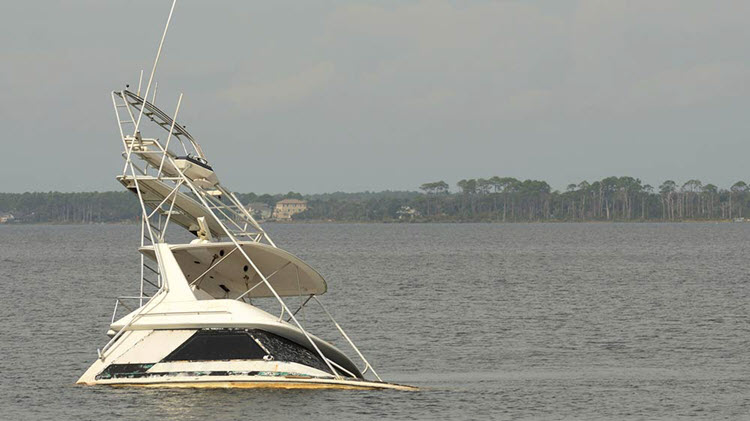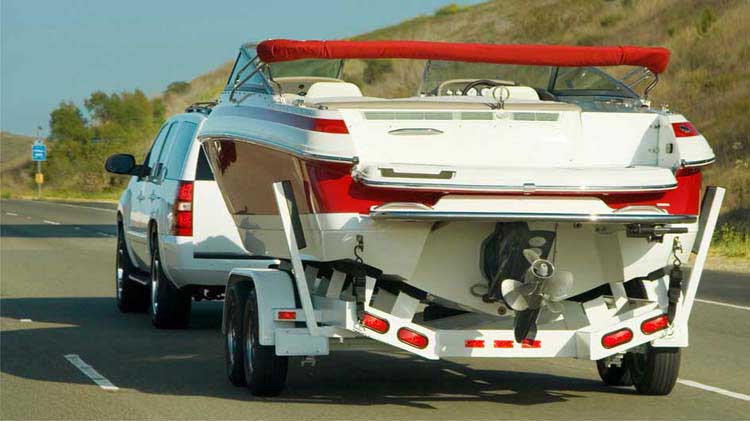Reporting a boating accident
Understand your responsibility if you are involved in an accident.
Proper boat safety starts with you, the boat owner. Accidents on the water can happen to even cautious, well-trained boaters at any time. The U.S. Coast Guard reported in 2023 that fatality rates were 4.9 deaths per 100,000 registered recreational vessels and property damage totaled $63 million.
Many boat owners may find themselves unsure of the necessary steps to take immediately following such incidents. Reporting a boating accident is not just a legal duty but a vital action to help ensure the safety of everyone involved, facilitate insurance claims, and enhance overall boating safety. If you're involved in a boating accident, it's important to know the requirements for reporting it to the proper authorities. Here are steps to help you be informed and ready to address what to do after a boating accident.
What type of report must be filed if there is an accident while boating?
After an accident, U.S. federal regulation (33 CFR 173.51) requires the operator of any vessel numbered or used for recreational purposes to submit a boating accident report. Individual states may have their own requirements for reporting accidents, but, in general, you must report it when:
- A death is involved.
- Someone is injured and requires more than basic first aid treatment.
- Anyone onboard the boat disappears.
- Damage to the vessel and other property totals more than $2,000. Lower limits apply in some states.
- Any of the boats involved in the accident are a total loss.
Who should report boating accidents?
All involved boat operators must submit the report to authorities in the state or U.S. territory where the accident happened. If the operator is unable to, then the boat owner must submit the report.
When should accidents be reported?
Reports should be made within 48 hours of the accident if a person is killed, injured or missing. If only the boat or property were damaged, you have up to 10 days to report the accident.
Key information to gather at the scene
Gathering detailed information at the accident scene can significantly impact the thoroughness of your report.
- Collect personal details of all involved — obtain the names, addresses and contact details of all parties involved, including passengers and witnesses.
- Write a detailed account of the accident — write an accurate and objective description, including the time, location and conditions at the time of the accident.
- Get photographic evidence — taking photos of the scene, the vessels involved and any visible damages can help provide valuable visual evidence.
Filing a report with relevant authorities
Typically, you should report the accident to local marine patrol, state boating authorities or the United States Coast Guard (USCG). Check your state's regulations to understand the specific requirements and deadlines for reporting an accident. Having their contact information readily accessible can help expedite the process. After collecting the necessary information, the next step is to file an official report.
- Forms and documentation needed — you will likely need to complete formal boating accident reports. Ensure you have all the required forms and supporting documentation for submission.
- Steps to file the report — determine how and where to file your report. This might involve mailing in forms, submitting them online or delivering them in person to local authorities or the USCG. Follow the instructions carefully to ensure compliance.
Why accurate reporting is important
Providing an accurate and detailed boating accident report is essential for several reasons:
- Facilitates insurance claims — precise information can help expedite the claims process.
- Aids in legal proceedings — accurate reports can help provide a clear, factual account of the incident, which can be crucial in legal disputes.
- Enhances boating safety — comprehensive reporting helps authorities identify accident trends and implement preventive measures, contributing to safer waterways for all.
Filing a boating accident report can be challenging. Here are some common issues and ways to help address them:
- Understanding legal terminology — boating accident reports may include complex legal terms. Seek clarification from legal advisors or the reporting authority when needed.
- Managing emotional stress — accidents can be emotionally draining. Take care of your mental health by seeking support from friends, family or a counselor.
- Ensuring cooperation from all parties — cooperation from all involved is vital. Remain calm and respectful when asking for information while explaining the importance of accurate reporting.
After reporting the boating accident to the authorities, contact your State Farm® agent. You can also start and track an existing claim online.
Before you start boating regularly, consider taking a boating safety course to help be prepared for emergencies. You might also want to learn how to trailer your boat, as it requires different driving techniques. And, of course, see that you have the right insurance coverage for your boat to help prevent surprises in case of an accident.




